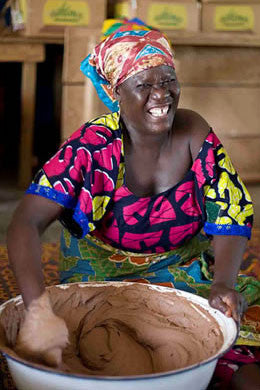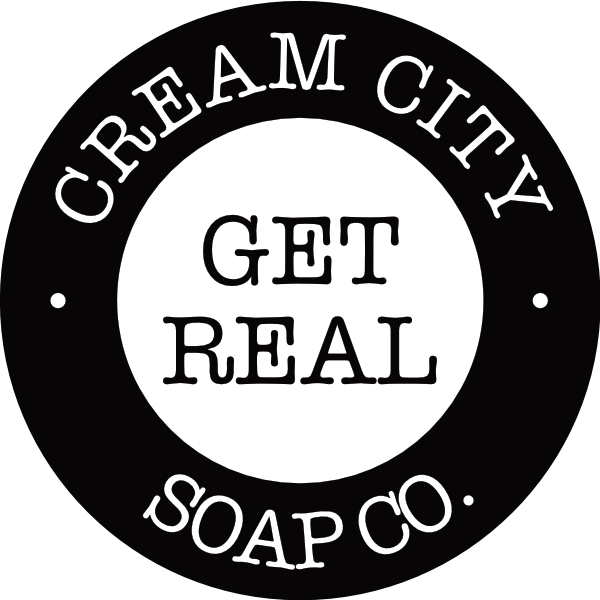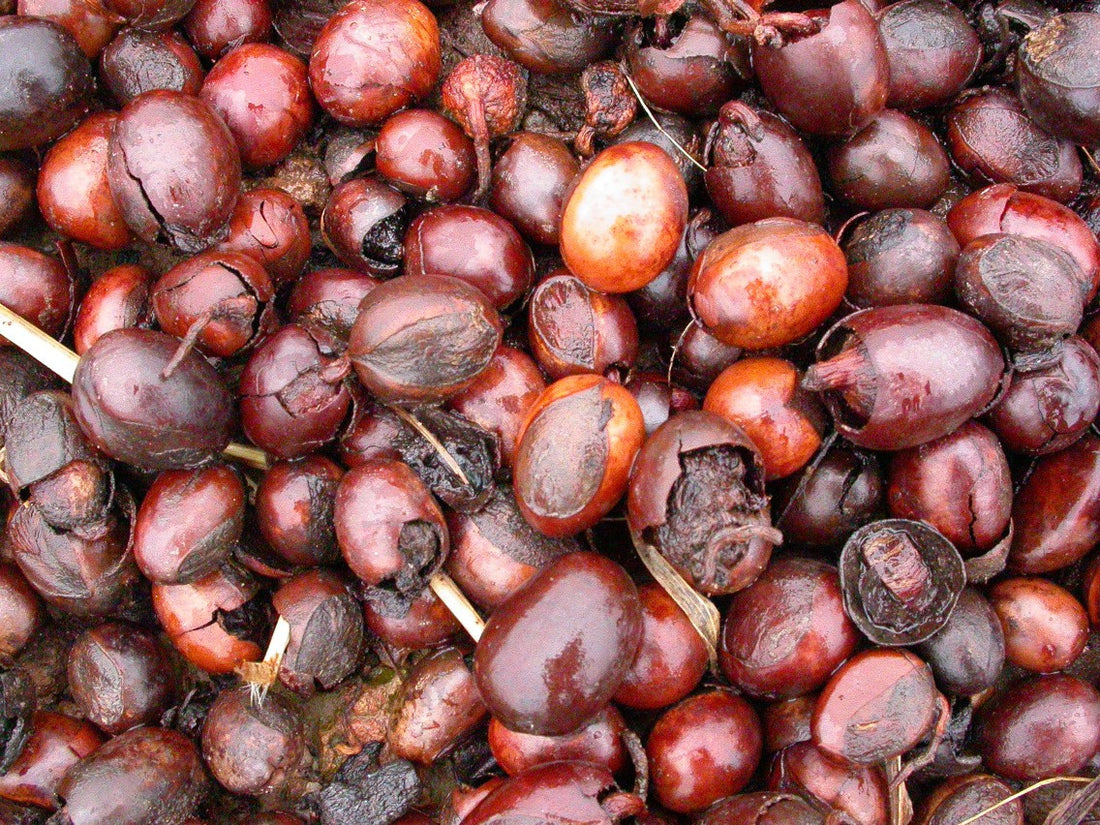This week we will explore a staple in western African culture, shea butter!
Shea butter is an off-white fat extracted from the nuts of the african Shea tree. The Shea tree, also commonly known as Karite, grows wildly in several West African countries. It takes the tree around 15 years to begin producing these nuts, and will stay highly productive even at 100 years old, with its highest output around the 50 year mark. The trees can end up living as long as 200 years. The shea fruit is reminiscent of a yellow avocado, with a similar seed in the middle. Around 50 percent of the seeds weight is extractable shea butter. If the seed is roasted before extraction, it may also be consumed just like an almond. Shea butter production will more than likely always stay within western Africa. The tree's specific climate needs and long maturity length of 15 years have made the shea tree not only difficult, but more than likely just not worth attempting to cultivate elsewhere.
Evidence shows that the use of shea butter dates back to as early as 100AD. It was used primarily cosmetically, as it is very effective in treating dry, damaged, or aging skin and hair. The Africans had such a high respect for the shea tree that they carved caskets out of shea wood for their kings. It is believed that Queen Cleopatra loved shea butter and would travel with many large jars so she could apply it to her skin every day.
The production of shea butter is reserved exclusively for woman in northern Ghana, a top producer in Africa. Women and children gather in groups to process shea butter and men never interfere with their shea butter businesses. It has empowered women, as it is sometimes the only source of income for them. Because of the rarity of income for woman, it is no surprise that shea butter is often referred to as "woman's gold". Luckily, the popularity of shea butter has given these woman a better standard of life.

Here at Cream City Soap Company, we sell 100% organic refined shea butter as a moisturizer.
Sources: Lost Crops of Africa: Volume II: Vegetables (2006) Ch. 17
https://en.wikipedia.org/wiki/Shea_butter
http://naturalhomes.org/naturalliving/shea-butter.htm
http://www.sheabutter.net/hiofshbu.html

